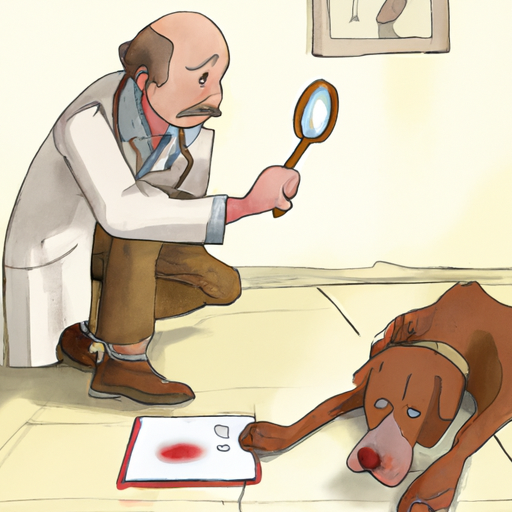It is never a pleasant sight when you notice blood in your dog’s urine, but understanding why this might happen can put you at ease and help you take the right steps towards your pet’s recovery.
H2: Understanding Hematuria
Hematuria is the medical term for blood in urine. If you’re noticing this in your dog, it’s likely an indicator that something isn’t right within their urinary system. This could be as a result of:
- Infections
- Trauma
- Stones
- Tumors
- Blood clotting disorders
While these are not the only causes, they are the most common.
H2: Common Symptoms to Watch Out For
Aside from the obvious presence of blood in the urine, your dog may show other signs that indicate a problem. It’s important to keep an eye out for these symptoms:
- Frequent urination
- Straining while urinating
- Lethargy
- Loss of appetite
- Vomiting
If you notice these symptoms in conjunction with blood in the urine, it’s time to consult your veterinarian.
H2: Diagnostic Steps
Your veterinarian will likely undertake a series of diagnostic tests to identify the root cause of the issue. These may include:
| Diagnostic Test | Purpose |
|---|---|
| Physical Exam | Assess overall health condition |
| Urinalysis | Check for infection or crystals |
| Blood Tests | Detect any systemic abnormalities |
| Imaging | Identify stones, tumors or other abnormalities |
H2: Treatment Options
Once a diagnosis has been made, treatment options will vary depending on the underlying cause of the hematuria.
- Antibiotics are commonly prescribed in case of urinary tract infections.
- Dietary changes may be suggested if your dog has urinary stones.
- In severe cases, surgery might be recommended.
H2: Preventative Measures
You can play an active role in preventing urinary issues in your dog. Ensuring they have access to clean water at all times, feeding them a balanced diet, and regular exercise are key.
Frequently Asked Questions
1. Can hematuria in dogs be fatal?
While hematuria itself isn’t directly fatal, it can be a sign of serious health issues that require immediate attention.
2. How can I tell if my dog has a urinary tract infection?
Frequent urination, difficulty in urinating, and blood in urine are common signs of a urinary tract infection.
3. How long does it take for my dog to recover from a urinary tract infection?
With proper treatment, most dogs recover from urinary tract infections within 7 to 14 days.
Remember, as a caregiver, your pet’s health is in your hands. Prompt action and regular check-ups can help ensure they live a healthy and happy life.



